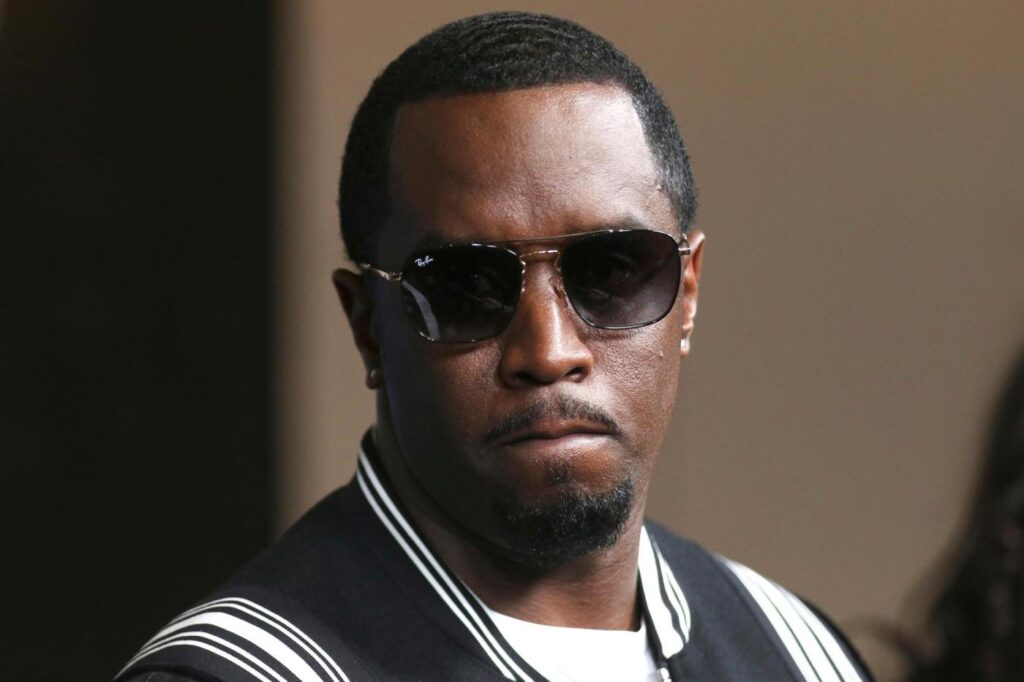
NEW YORK (AP) — Sean “Diddy” Combs appeared in better spirits as he entered the Manhattan federal courtroom on Wednesday morning. The hip-hop mogul, facing serious charges including sex trafficking and racketeering conspiracy, greeted his family and supporters with a smile and a gesture of clasped hands, a stark contrast to his demeanor the previous day.
The jury, now on its third day of deliberations, has reached a verdict on four out of five charges against Combs, but remains deadlocked on the most severe charge: racketeering conspiracy. This charge carries the potential for a life sentence, adding significant weight to the trial’s outcome.
Inside the Courtroom: Combs’ Emotional Day
Combs, 55, spent a reflective moment with his family before the day’s proceedings began. With heads bowed in prayer, the family sought solace in their faith, a scene reminiscent of earlier moments during the trial. After the brief prayer, Combs was led from the courtroom by U.S. marshals, while his family departed in a van, leaving the courthouse behind.
Judge Arun Subramanian, presiding over the case, instructed the jury to continue their deliberations despite their note indicating a stalemate on the racketeering charge. Both the prosecution and defense agreed that more time was needed to reach a consensus.
The Charges and Their Implications
The charges against Combs are severe, with the sex trafficking charge alone carrying a mandatory minimum sentence of 15 years, and the potential for a life sentence. The transportation charge, related to engaging in prostitution, could add up to 10 years to his sentence.
In a note to the court, the jury cited “unpersuadable opinions on both sides” as the reason for their inability to reach a unanimous verdict on the racketeering conspiracy charge. This charge is particularly complex, involving allegations that Combs coerced two girlfriends into participating in drug-fueled sex marathons with male sex workers.
Defense and Prosecution: Contrasting Narratives
Combs’ defense team argues that the prosecution is unfairly criminalizing his lifestyle, which they describe as consensual and non-criminal. They contend that at most, Combs’ actions could be considered domestic violence, not federal felonies. Meanwhile, prosecutors maintain that Combs’ actions were coercive and exploitative, warranting the serious charges brought against him.
“The jury’s decision on the other charges remains under wraps for now,” noted a court observer, highlighting the secrecy surrounding the partial verdict.
Historical Context and Expert Opinions
This trial is not just a high-profile case due to Combs’ celebrity status; it also reflects broader societal issues surrounding consent, power dynamics, and the criminal justice system’s handling of such cases. Legal experts have pointed out the complexities involved in proving racketeering conspiracy, especially in cases involving personal relationships and alleged consensual activities.
Historically, cases involving celebrities often draw intense public scrutiny and debate. The outcomes can set precedents, influencing future legal interpretations and societal attitudes towards similar allegations.
Looking Ahead: Potential Outcomes and Implications
As the jury continues its deliberations, the potential outcomes remain uncertain. A conviction on the racketeering charge could result in a life sentence for Combs, drastically altering his life and career. Conversely, an acquittal or hung jury could lead to a retrial or the possibility of reduced charges.
The trial’s conclusion will undoubtedly have significant repercussions, not only for Combs but also for the broader conversation around consent and accountability in relationships involving power imbalances.
Combs, who has chosen not to testify, maintains his innocence. As the world watches, the jury’s final decision will be pivotal, marking a significant chapter in the ongoing narrative of celebrity justice.





